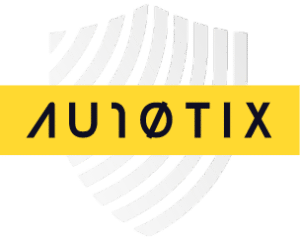Tough economic times have the uncanny ability to reset markets. They pull apart weak and unsustainable business models. And this holds true for the cybersecurity industry and identity fraud solutions providers.
As the reset occurs, several events unfold. People’s values become more malleable. In what could be considered his seminal work, Criminologist, Donald R. Cressey points out that tough times don’t just lead to cutbacks and tighter spending people. They also lead to an increase in fraudulent activity.1
Values erode as pressure mounts. And that’s when ordinary people who would otherwise not perpetrate fraud crimes are more likely to justify criminal acts normally inconsistent with who they are.
For enterprises and vendors, consolidations take place on both fronts. Survival becomes a matter of trimming the fat. Vendors strip away parts of their businesses to weather the storm. They invest less in essentials like R&D and support.
And there’s another more harrowing scenario that’s taking place today. Previously well-funded startups are getting acquired. Few startups manage to achieve profitability, and money wells dry up. The only option is to sell, leaving their clients with broken promises.
Enterprises whittle down their commitments, getting rid of multiple IDV vendors. And it makes sense. It’s far more expensive to rely on 10, seven, or five vendors than just three or two. It’s also less complex when you have fewer vendors to manage because a ‘lighter’ IDV tech stack compliments a more refined strategic approach to identity fraud prevention.
But what does this all look like for enterprises trying to get through an economic downturn?
Identifying a reliable identity fraud prevention partner
Business leaders don’t have the latitude to make big mistakes. Everything happens faster than just two years ago. Their best decisions are and have to be based on access to as much trusted information as possible.
To help you place the odds in your favor, especially in a challenging economic environment, here’s a framework with my thoughts on what to consider when reviewing and looking for a reliable identity fraud partner.
It’s designed to help you find the best way to consolidate your IDV stack and do so with the least amount of disruption to your business. This framework will guide you through identifying which vendor(s) to give you all the protection you need to save your business, people, and customers from identity fraud.
While this framework includes some of the more common tips, like examining customer reviews, it also explores the more telling signals that hint at potential consolidations that could see your enterprise caught in a compromising position.
Using these seven criteria will also give you an idea of how prepared your current or future identity fraud service provider is to deliver on its promises regardless of the state of the economy.
Financial Stability and Track Record
Dig into their finances. Check financial statements, revenue growth, profitability, and any publicly available information on their financial health. If they have been funded, establish who’s backing them and how fast they are running through funding.
Following the money will help you identify how well your provider manages their operation and if they would be able to weather the storm, and for how long.
Support and Service Level Agreements (SLAs)
Assess the vendor’s support offerings and SLAs by looking for examples of past performance. Examine instances where they met and exceeded SLAs. Also, speak to their customers for honest feedback on how the vendor handled challenges. You want assurances that it can provide timely assistance in case of any issues or emergencies.
Industry Reputation and Certifications
Consider the vendor’s reputation within the industry and whether they have relevant certifications and accreditations. Vendors who are recognized by industry authorities or have earned certifications in fraud detection and prevention demonstrate a commitment to quality and compliance.
Keep an eye out for any missteps they’ve had too. Questions you must answer include whether they had fallen behind with compliance before and what issues led to a failure to achieve compliance, how quickly they were able to remedy the problem, and what their position was when explaining compliance failure to stakeholders and customers.
Technology, Innovation, and Reach
Evaluate the technology used by the vendor for fraud detection. Providers with homegrown intellectual property offer more confidence because they control the technology powering your identity fraud solution.
Providers who rely on outsourced layers pieced together to form their tech stacks introduce more risk to your business. Their solutions are like a house of cards. If one piece fails or a relationship with a subcontractor deteriorates, you’re left picking up the pieces.
Also, consider the impact of new and innovative solutions. Forward-thinking providers are more likely to adapt and improve over time, making them resilient during economic challenges.
Look for vendors that incorporate advanced technologies like AI-driven predictive analytics and behavioral biometrics to stay ahead in the fraud prevention landscape. Dig into press releases about product developments, blog posts, and articles discussing product enhancements.
It’s also critical to understand what your vendor’s reach really is. Do they have built-in regulatory compliance and is their solution language agnostic? If your business has an international footprint or is presented with the opportunity to grow one, it’s best that you align with a vendor that can easily support your reach.
Data Security and Compliance
Given the sensitivity of the data involved in fraud detection, you want a vendor that adheres to strict data security and privacy standards. Verify their compliance with relevant regulations such as GDPR or other data protection laws to safeguard your customers’ information. Here, look for any prior compliance issues and get a feel for how they were remedied and addressed their missteps in a public forum.
Scalability and Flexibility
Choose vendors whose solutions can scale alongside your business and think about flexibility. A scalable solution will accommodate your growth, and flexibility will allow adjustments to be made when and if your business struggles in the face of any economic uncertainty.
And these moments where scalability is essential can happen faster than most realize. In 2020, we reported a surge in crypto account creation. This surge was a 623% increase in new accounts created in just eight weeks. Managing a rapid influx and the need to successfully complete verification for each new account is only possible with an automated, sophisticated, scalable, and flexible solution.
Vendor’s Financial Contingency Plan
Inquire about the vendor’s financial contingency plan for addressing economic downturns. A responsible vendor will have measures in place to manage risk. It will also maintain the continuity of its services even in challenging times. While there are several ways to make it through a tough economy, review your vendor’s plan to see where and how it will affect your operation.
Be Prepared
As identity fraud becomes more prevalent you’ll have to be thorough. When taking to the drawing board to find the best way to consolidate your IDV requirements, it’s critical to align yourself with a vendor capable of serving you and your business, without skipping a beat. While not an exhaustive list, this seven-point framework offers a practical approach to identifying the most reliable and value-driven identity fraud partner. It gives you the best chance to prevent your business from suffering an identity fraud event that could be crippling.
Sources: 1 The Fraud Triangle Revisited







